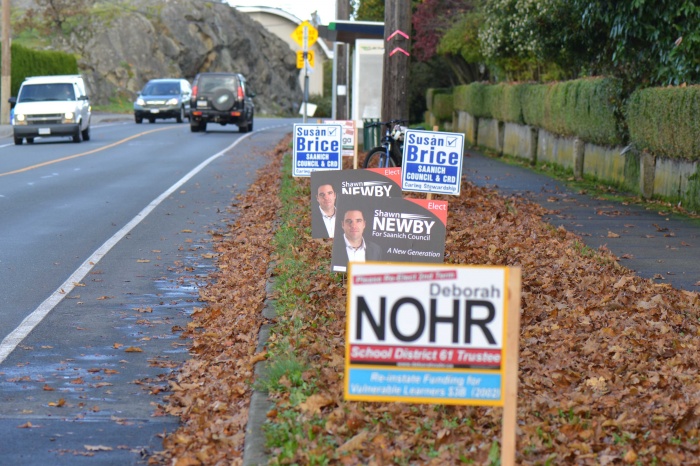Municipal voting day for British Columbia is November 15.
Municipal elections deal with many issues that matter to students, says Camosun political science professor Dan Reeve.
“Things like sewage, which has an environmental impact, or transit, or bike lanes, or low income housing… these things might drive you to the polls,” he says.

Reeve also says the low number of voters makes it extra important for students to vote. “Only 25 percent of the populace votes in municipal elections,” he says. “With the low number of people that do vote, if students formed any kind of coalition around an issue, their voices would be heard.”
Reeve says it’s important to start voting while you are young. “Statistically, the earlier you vote the more likely you are to vote through your life,” he says, “and I think that is very important.”
Municipal voting fast facts:
To vote in the municipal election you must be at least 18 years old, a Canadian citizen, and a resident of BC for at least six months prior to the election.
Advance voting days vary by municipality.
You must have lived in your municipality for at least 30 days prior to the election in order to vote there. Both Saanich and Victoria have voters lists online; for other municipalities, you may need to find a map of municipal boundaries.
The locations of voting stations varies by municipality; check online.
Each ballot contains the choice to vote for a mayor, city council members, and school board trustees. Lists of candidates are on municipal websites.
In Saanich and Victoria, there are polls regarding who should represent the municipality at the Capital Regional District.
Your ballot may contain questions regarding your opinion on amalgamation, which would combine some or all of Greater Victoria’s 13 municipalities.
You can register to vote before the election or at the time of voting. Voters need two pieces of identification that together prove where they live and include a signature. These include things like a BC driver’s license, a Canadian passport, a SIN card, or BCID. For a complete list, check your municipality’s website. If you do not have proof of your address, you must still provide two pieces of ID, one with a signature, and solemnly swear that you live where you say you live.
